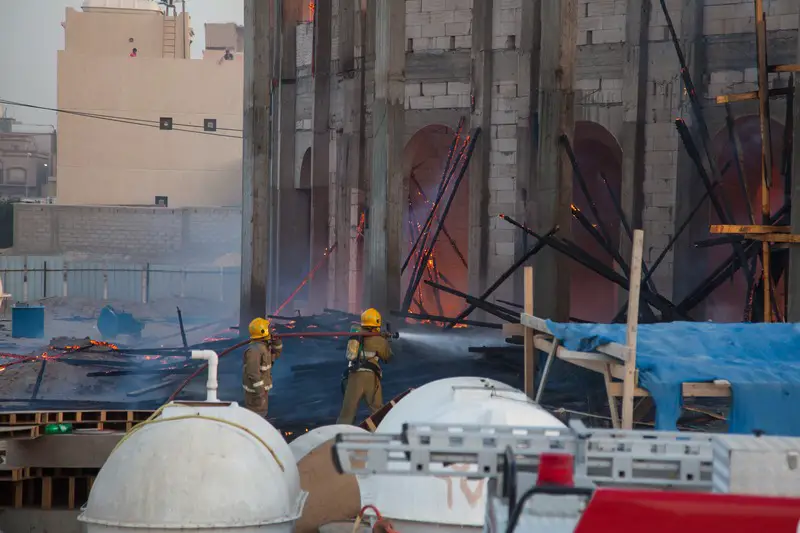On June 12, 2024, a devastating fire erupted in a residential building in Mangaf, Kuwait, claiming the lives of 49 people, all of whom were foreign employees. Originating from the guard’s room on a lower level, the fire rapidly engulfed the building, producing dense smoke and effectively trapping occupants on the upper floors.
Sheikh Fahad Yusuf Saud Al-Sabah, Kuwait’s Deputy Prime Minister, linked the disaster to the avarice of property owners and potential breaches of construction codes. During his visit to the site, he contended, “The greed of real estate owners leads to these matters.” The specific infractions at the scene, if any, remain undetermined.
Reports reveal a high number of casualties were Indian nationals, with one count reaching 46, in addition to three Filipinos. The Indian ambassador made rounds at hospitals where victims were receiving treatment for injuries obtained from the fire. Over 30 Indian nationals were hospitalized, while a minimum of 47 employees received medical care for their injuries. According to an early letter from Kerala Chief Minister Pinarayi Vijayan, several deceased individuals were Indians, including citizens of Kerala.
The Indian government has actively participated in aiding the victims and their families. The bodies of the Indian nationals who lost their lives were sent back to India. Union Minister VK Singh and Kerala Chief Minister Pinarayi Vijayan, among other politicians, received the bodies at the Cochin International Airport in Kerala. The Indian Air Force was tasked with transporting the remains, ensuring they were returned to their families with respect.
NBTC Group, the company that employed the victims, announced monetary compensation for the families of the deceased and injured employees. Each family of the deceased is set to receive roughly $9,734.32, while the injured will receive about $2,433.58, plus the cost of all medical expenses.
Kuwaiti authorities have initiated an investigation into the cause of the fire. Major General Eid Rashed Hamad told state television that the fire was first reported at 6 a.m. and was subsequently contained. Early investigations suggest an electrical short circuit as the likely cause of the fire. Further examination revealed the presence of combustible materials used as dividers in the building contributed to the rapid spread of smoke.
A high-ranking police officer noted that smoke inhalation was the cause of death for many victims and highlighted previous warnings against housing a large number of workers in a single residential unit. Despite these warnings, the building was home to around 195 migrant workers. The interior ministry is persisting in its search for victims and efforts to identify the deceased.
This tragic event has profoundly impacted the families of the victims. Many were anticipating the homecoming of their family members who had intended to return to India soon. Indian Prime Minister Narendra Modi expressed his condolences, stating, “My sympathies go out to everyone who has lost loved ones. I hope for a swift recovery for the injured.”
An Egyptian survivor employed as a driver recounted his terrifying experience to the local press. He narrated how the fire originated from a lower floor, and dense smoke swiftly filled the building, making escape impossible for those situated on the upper floors.
The fire incident has brought to light the precarious living conditions of low-income, blue-collar workers in the Gulf region. Overcrowding and unsafe living arrangements are prevalent, and this incident has sparked renewed demands for more stringent enforcement of safety regulations. Kuwaiti authorities have pledged to take necessary actions to prevent such incidents in the future. Those connected to the incident have been detained on manslaughter charges due to safety negligence by order of the public prosecutor’s office.
The Indian government has reiterated the necessity for improved protection and assistance for Indian migrant workers overseas. This incident serves as a stark reminder of the risks these workers undertake and the importance of safeguarding their safety and well-being.











